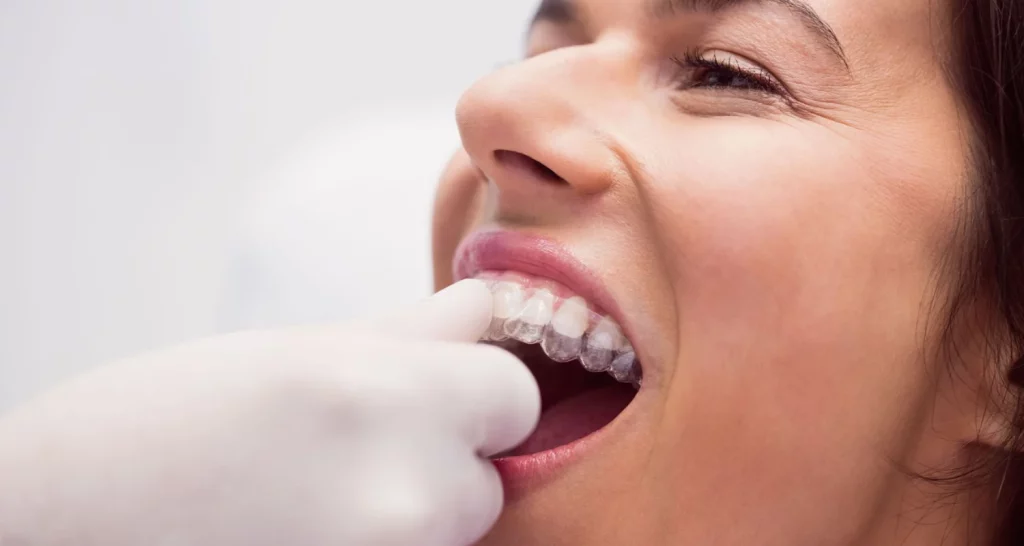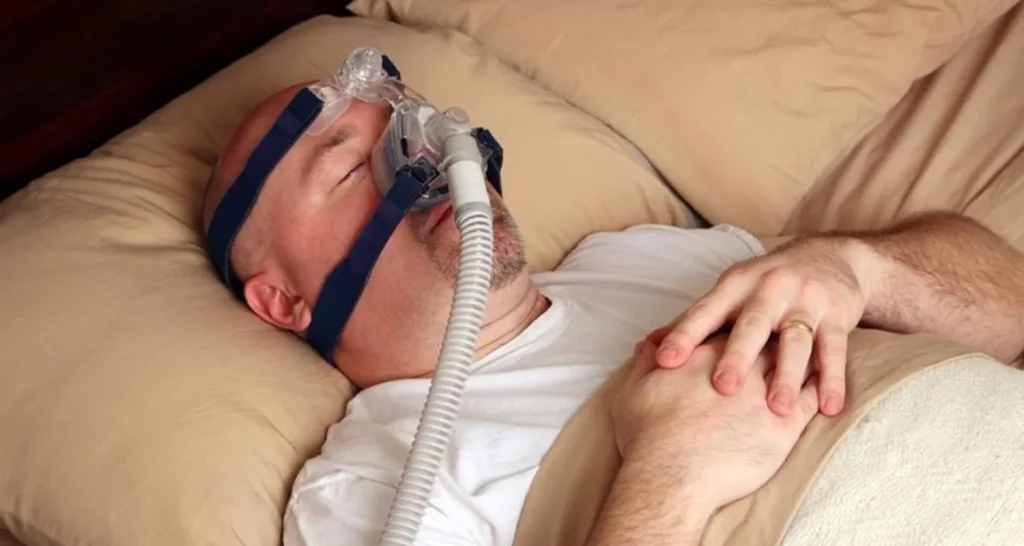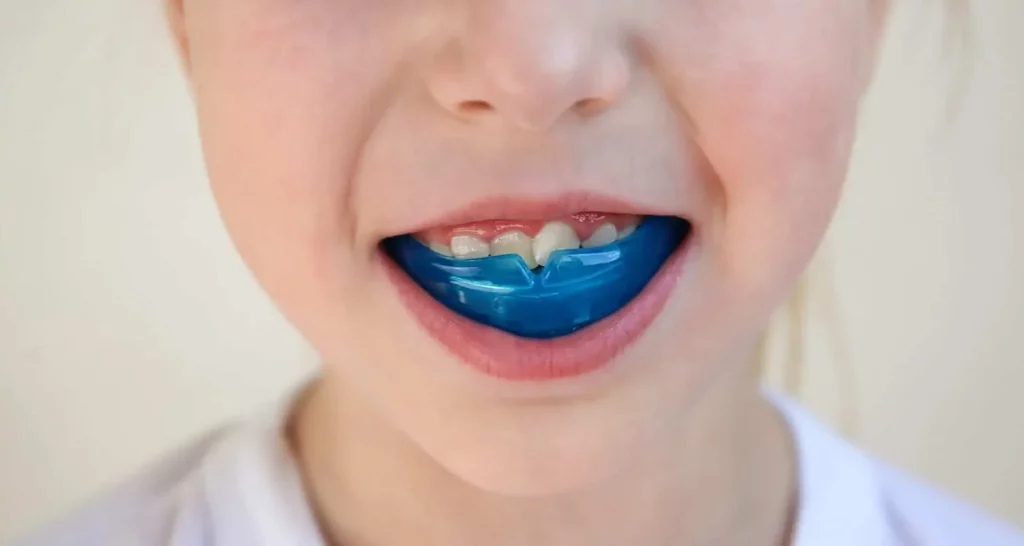Last Updated on: 12th December 2025, 06:47 am
Do you know the importance of the night guards?
If you’ve ever woken up with a headache or jaw pain for no apparent reason, you may have bruxism. According to the American Dental Association, 15 out of every 100 adults suffer from the condition, which is manifested by clenching or grinding the teeth.
This phenomenon can occur at any time, especially under stressful situations or while sleeping. Unfortunately, this can cause abnormal and excessive wear on the teeth, as well as cracks or fractures. It can also cause jaw pain, insomnia, and headaches.
What are Night Guards?

Night guards, also known as occlusal guards or splint devices, are placed over the teeth to protect them. Their main function is to prevent damage to the teeth caused by bruxism, a destructive oral habit that, as noted, involves grinding and clenching the teeth. These devices are not designed to prevent the act of clenching or grinding, but to help relieve tension and cushion the jaw muscles when you do clench your jaw.
This cushioning not only prevents headaches, facial and jaw pain, tooth wear and fracture, and tooth sensitivity, but it also protects tooth surfaces from the damage caused by these actions, such as weakening the enamel. In addition to using a custom night guard, your dentist may recommend measures to reduce the frequency and intensity of the bruxism, such as limiting caffeine and alcohol consumption, reducing or eliminating tobacco use -especially before bed – and engaging in relaxation activities.
Do you need an Occlusal Guard or Night Guard?
If you are wondering whether you need an occlusal or night guard, it is important to consider the frequency and intensity of the bruxism. While occasional teeth grinding or clenching shouldn’t be a major concern, consistent, long-term bruxism can lead to pain, broken teeth, loss of tooth enamel, and, in severe cases, the loss of the teeth themselves. For those who experience moderate to severe bruxism, an occlusal guard can be of great benefit to their oral health.
It is estimated that around 10% of adults and up to 15% of children are affected by this condition. This grinding and clenching usually occurs at night, but it can also be a daytime habit many people are not aware that they have the problem. Unless your sleeping partner complains about the noise, the dentist is usually the first to notice damage to the teeth, engendering concern.
When Should I Consider a Night Guard?

Symptoms of bruxism
Bruxism is a condition that causes a person to grind, clench, or tense the jaw muscles. It can occur during the day or night. The symptoms include:
● Tooth wear (enamel abrasion, cavities, chips, cracks and flattening).
● Pain and tension in the jaw.
● Jaw locking, clicking, clicking when engaging, disengaging.
● Indentations on the tongue (especially if there is a dry mouth).
● Indentations on the inner cheek, friction damage, and tissue wear due to teeth grinding.
Sleep apnea
Although mouthguards are not the first treatment option for sleep apnea, they may offer some benefits for people with mild to moderate sleep apnea, in which breathing stops and starts during sleep. Mouthguards keep the airway open by preventing the tongue from blocking the throat.
Braces
If you grind your teeth at night and have braces, your dentist or orthodontist may decide that you need a night guard. In this case, you will receive a custom-made piece that fits over your braces. There are a few brands and models of night guards on the market that are designed to be used with braces.
Manufacturing of Night Guards
Typically made of plastic, night guards are designed to be worn over the upper or lower teeth, most commonly the uppers. These protectors are customized in a dental laboratory from a mold of your mouth. They are designed to be comfortable. You can drink water while wearing them, but sugary foods and drinks should be avoided to keep them clean and prevent bacteria buildup during sleep.
How Night Guards Work

The American Association of Orthodontists explains that, just before reaching deep sleep, different factors can cause pauses in breathing, causing the brain to tell the jaw to clench and grind to keep the airway open. This allows us to continue breathing but prevents deep sleep.
A night guard protects your teeth from damage caused by the force exerted by grinding. However, it is crucial to understand and treat the underlying cause of sleep disturbance for a comprehensive solution.
Benefits of Night Guards
Wearing a well-fitting night guard can protect your teeth, improve sleep, and prevent morning headaches and jaw pain. Bruxism is a main cause of endodontic treatments due to tooth wear. Night guards are less expensive than other dental treatments needed to repair teeth damaged by bruxism.
Caring for your Night Guard
You should rinse the guard with cold water or mouthwash before and after each use, or clean it with mild soap and a toothbrush. Store it in a firm, perforated container to allow air circulation and prevent damage. If it is acrylic, store it in clean, cool water. Protect the protector from high temperatures to prevent deformation and check it periodically for wear or damage. Take it to each dental visit for examination.
Types of Night Guards

There are three types of dental guards:
1. Measure: A custom mouth or night guard is considered the best option. recommend it as the most comfortable choice because it provides the best fit, leading to better protection. It is made according to the shape of the mouth, using a mold made by your dentist.
2. Boil-and-bite: These mouthguards can be purchased at many sporting goods stores and pharmacies; they may offer a better fit than standard mouthguards. They are first softened in water (boiled), and then inserted. They adapt to the shape of your mouth as they cool down. However, boil-and-bite mouthguards do not fit as well as custom-made guards do. They often feel bulky and do not work well with orthodontic braces.
3. Prefabricated or standard: They are inexpensive and can be used immediately. They are usually made of a foam material. Standard mouthguards usually don’t fit very well. They are known to make breathing and speaking difficult, making them especially challenging to use during organized sports.
Types of occlusal night guards
● Soft night guard: For mild cases of bruxism, these are a viable option They are comfortable and easy to get used to wearing.
● Dual laminated night guards: Designed for moderate to severe bruxism, they have a soft internal surface and a hard, durable external surface.
● Hard night guards: Suggested for very severe cases of bruxism. They are made of acrylic, are extremely durable, and need to be customized by a dentist.
Other Important Aspects About Night Guards
If the guard you choose is not comfortable, it may not have the correct fit and needs to be adjusted. Most guards are worn only at night, but those who grind or clench their teeth during the day may also benefit from wearing them. It is crucial to clean the protector before and after each use, as they are prone to colonization by bacteria or other microorganisms. Improper care can lead to greater oral health problems or the spread of some diseases.
Conclusion
In conclusion, choosing the right dental guard is crucial to ensure effective protection and optimal comfort. While custom-made guards offered by dentists represent the best option in terms of fit and comfort, alternatives such as boil-and-bite guards and prefabricated versions provide more affordable options, albeit with certain limitations. It is important to consider individual needs and the dentist’s professional recommendations when selecting a dental guard, especially for those who participate in sports or suffer from bruxism. This will ensure maximum protection and proper oral health care.
Frequently Asked Questions
What not to do with a night guard?
Avoid letting your night guard soak for more than an hour. Leaving it submerged for a long time can deteriorate the material. Also, do not immerse it in liquids that contain alcohol.
Should all teeth touch the night guard?
Ideally, not all teeth touch the night guard. We look for the posterior teeth or canines to make contact when sliding the lower jaw forward. It is not desirable for the front teeth to come into contact with the night guard when performing this movement.
Are night dental guards useful?
Night guards do not prevent a person from clenching or grinding their teeth, but they do act as a protective barrier, cushioning the teeth and preventing excessive wear. Additionally, they help maintain proper space between the upper and lower teeth.
What side effects can a dental guard cause?
Side effects of using a night guard can include the buildup of germs on the device, which may cause sore throats, nausea, colds, flu, chest infections, and even asthma or strep and staph infections. Additionally, night guards can become a source of bacteria that may cause gum infections and cavities.
Share:
References
1. Pugle M. (Oct, 2022). Selecting the Best Night Guard for Your Oral Health. Verywell Health. https://www.verywellhealth.com/night-guard-for-teeth-the-right-fit-5525386
2. Delta Dental. (n/f). What is an occlusal guard?. https://www.deltadental.com/us/en/protect-my-smile/oral-health-habits/occlusal-mouth-guards.html
3. Redd N. (Mar, 2021). We Tried to Find the Best Mouth Guard for Teeth Grinding. We Bit Off More Than We Could Chew. Wirecutter. https://www.nytimes.com/wirecutter/blog/mouth-guard-teeth-grinding/
4. Cleveland Clinic. (Jan, 2023). Mouth Guard. https://my.clevelandclinic.org/health/treatments/10910-mouthguards
5. Sleep Foundation. (Oct, 2023). The Best Mouthguards for Teeth Grinding. https://www.sleepfoundation.org/best-mouthguard-for-teeth-grinding
- Nayibe Cubillos M. [Author]
Pharmaceutical Chemestry |Pharmaceutical Process Management | Pharmaceutical Care | Pharmaceutical Services Audit | Pharmaceutical Services Process Consulting | Content Project Manager | SEO Knowledge | Content Writer | Leadership | Scrum Master
View all posts
A healthcare writer with a solid background in pharmaceutical chemistry and a thorough understanding of Colombian regulatory processes and comprehensive sector management, she has significant experience coordinating and leading multidisciplina...Recent Posts















